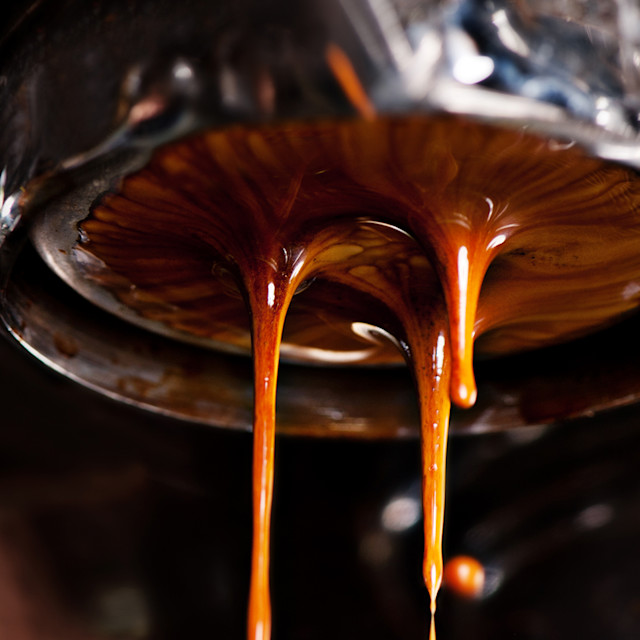Discover why endurance athletes are relying on caffeine for a cognitive and physical boost.
For many, drinking coffee is just as much a part of the daily routine as brushing your teeth. You reach for your favorite mug and brew up that tasty blend first thing in the morning to jumpstart the day. This might be followed up by a second cup soon after, not to mention the post-lunch pot to get you through the rest of the workday. The reason is simple: Coffee contains caffeine, and caffeine is an energy-boosting stimulant.
Similar to how the caffeine from coffee helps keep you going throughout the day, it can also enhance athletic performance, especially during longer endurance activities. In recent years, it has become increasingly common for athletes to harness the powers of caffeine while taking on extreme physical challenges such as ultramarathons, Ironman races, or stage bike races.
Here, Lauren Thomas, M.S., R.D., C.S.S.D., L.D., a registered dietitian with sports nutrition company Maurten, breaks down how caffeine can boost your performance — and the steps you can take to safely reap those benefits.
How Caffeine Impacts Performance
A naturally occurring stimulant that affects the central nervous system, caffeine blocks adenosine receptors in the brain and, in turn, “increases wakefulness and increases endorphin release like dopamine,” Thomas explains. It has the potential to “increase alertness, vigilance, endurance capacity, and neuromuscular function,” she adds. “Most notably, it's been shown to reduce the perceived exertion of exercise and is noted as one of only five effective ergogenic aids by the International Olympic Committee.” What’s more, caffeine can generally aid in minimizing fatigue, boosting mood, and improving cognitive performance (think: reaction time, and attention), says Thomas.
The drawbacks of caffeine tend to surface with higher doses. Consuming more than 9 milligrams of caffeine per kilogram of body weight can lead to “nausea, gastrointestinal discomfort, anxiety, insomnia, rapid heart rate, and restlessness,” says Thomas. That said, “responses to caffeine are very individualized, as benefits will be reliant on your body weight, habitual intake, and genetics,” she adds. “There are genetic variations that can affect how quickly someone breaks down caffeine, with slower metabolizers not necessarily seeing a performance benefit.”
RELATED: The Promise and Hype of Peptides
How to Use Caffeine for Endurance Activities
There are more ways to get your caffeine fix than pounding espresso shots, including sports-specific gels, bars, and drinks. “If going for a sports food [or] supplement with caffeine, look for third-party tested products ([such as] NSF Certified for Sport) for safety, and double check that it provides a dosage that will be effective for you,” advises Thomas. “While it's dose-dependent, more is not always better.”
Dialing in the proper dosage and frequency for consumption is just as important as what you take during long stretches of activity. Thomas recommends “3 to 6 mg/kg of body mass consumed 60 minutes prior to exercise, while smaller doses (100 mg to 300 mg [total]) during endurance exercise (after 15 to 80 minutes of activity) may enhance performance as well.” Consider taking your caffeine with carbohydrates during endurance activities, which may improve the stimulant’s efficacy, says Thomas.
RELATED: Female Athletes Need Carbs
The caffeine will likely reach your bloodstream five to 15 minutes after consumption, and its levels will peak within 45 to 90 minutes, says Thomas. “Space caffeine out throughout the event, keeping in mind that 400 milligrams per day is generally recognized as a safe amount by the FDA,” she continues. “It's critical to develop an individualized nutrition strategy for races surrounding caffeinated products and always practice using these products during key sessions.”
Despite the common belief that caffeine dehydrates you, it won’t have a notable impact on healthy adults when consumed in appropriate portions. Still, it may “disrupt the quality of sleep and recovery without the athlete even realizing,” Thomas notes. “Some athletes also notice higher doses may damper their appetite, which can cause a challenge when sticking to proper fueling routines.”
With long-term consumption, you also run the risk of experiencing withdrawal symptoms when you stop or reduce your intake; potential symptoms include headaches, irritability, tiredness, increased blood pressure, cardiovascular effects in those with chronic disease, and interactions with medicine or pharmacological treatments, says Thomas.
The bottom line: Incorporating caffeine into your pre-workout routine might do you some good. So chug that cup of Joe and wolf down that caffeine-infused energy bar — your next PR awaits.
